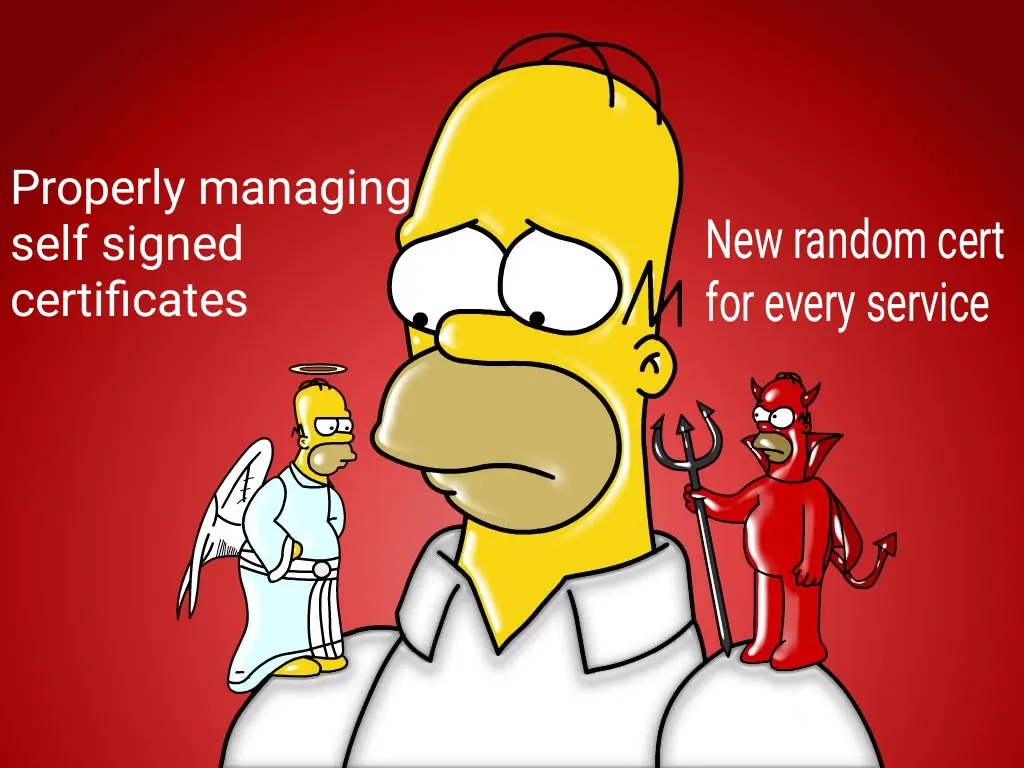this post was submitted on 02 Oct 2023
310 points (93.8% liked)
Sysadmin
7808 readers
1 users here now
A community dedicated to the profession of IT Systems Administration
No generic Lemmy issue posts please! Posts about Lemmy belong in one of these communities:
[email protected]
[email protected]
[email protected]
[email protected]
founded 2 years ago
MODERATORS
you are viewing a single comment's thread
view the rest of the comments
view the rest of the comments

If you do, you remove the ability to prove that a service is what it claims to be as this requires accepting its provided cert - that is, authenticate it. You have to trust somewhere, even in a "zero trust" environment. Using self-signed certs for services to communicate means that you have to either have manual involvement every time a service comes up or accept the authenticity of a self-signed cert automatically. Either would be a compromise in security over use of a private CA, not an improvement.
Again, that works if your only concern is data across the pipes being encrypted during transmission but, it removes nearly all of the other additional security provided by PKI and increases your threat surface. It can be acceptable in some cases, like dev envs or as temporary measures but, with the constant increase in malicious traffic and activity, we've got to aim for better.
Oh. I'm absolutely including a private CA as part of self signed cert. That's probably my misuse of the term
Oh! Then you are doing it right. That was basically my entire objection - having A chain of trust is necessary to effectively and securely use certs because you have a mechanism to validate, rather than trust the cert that is presented as authentic. :)